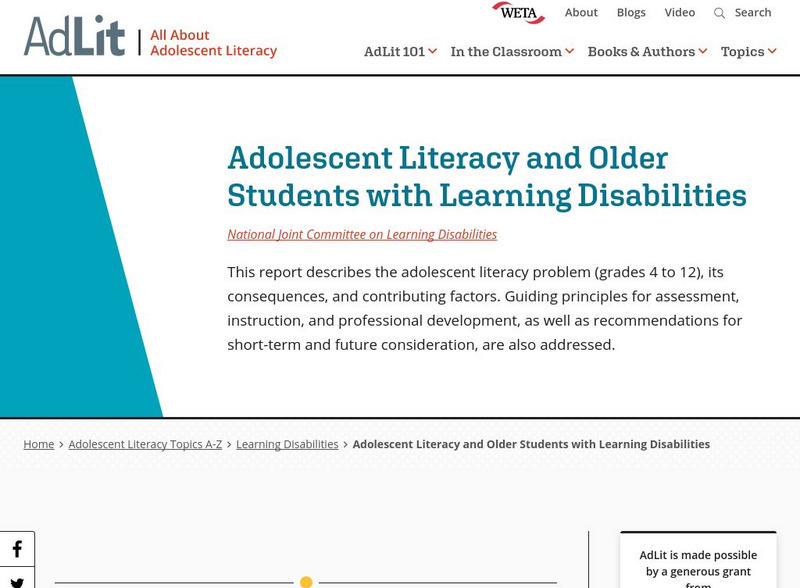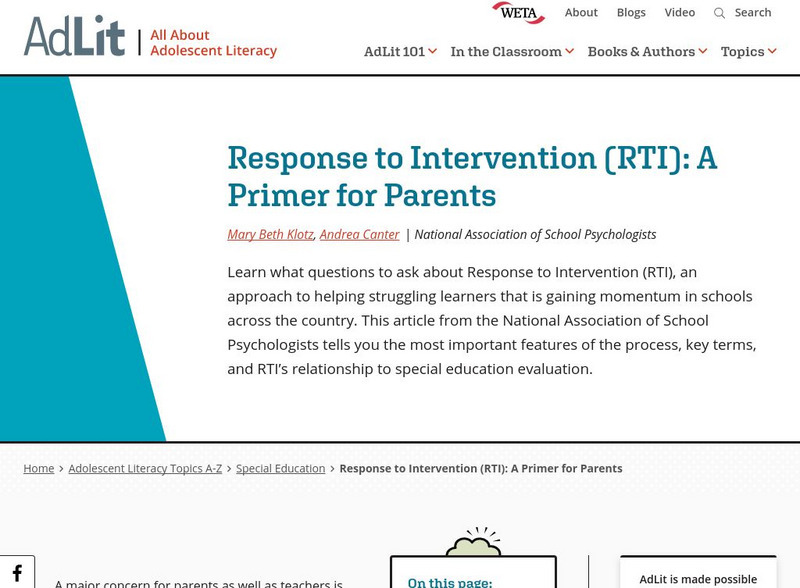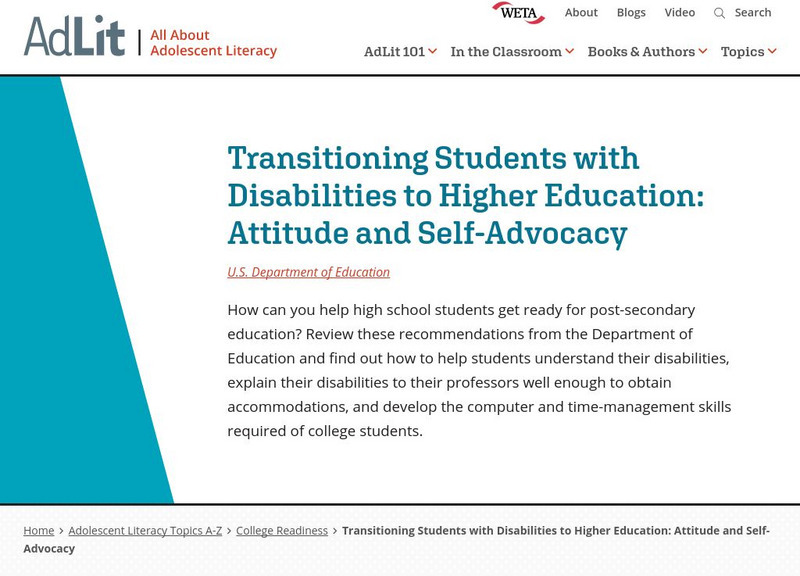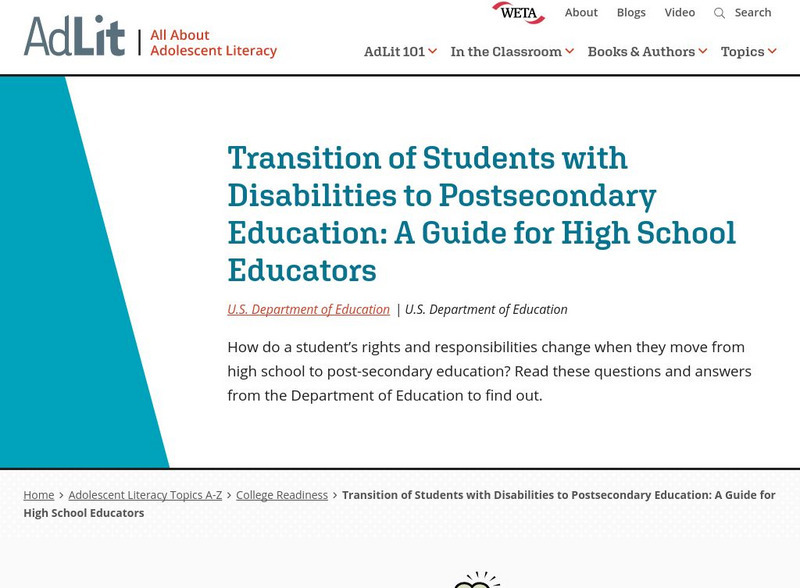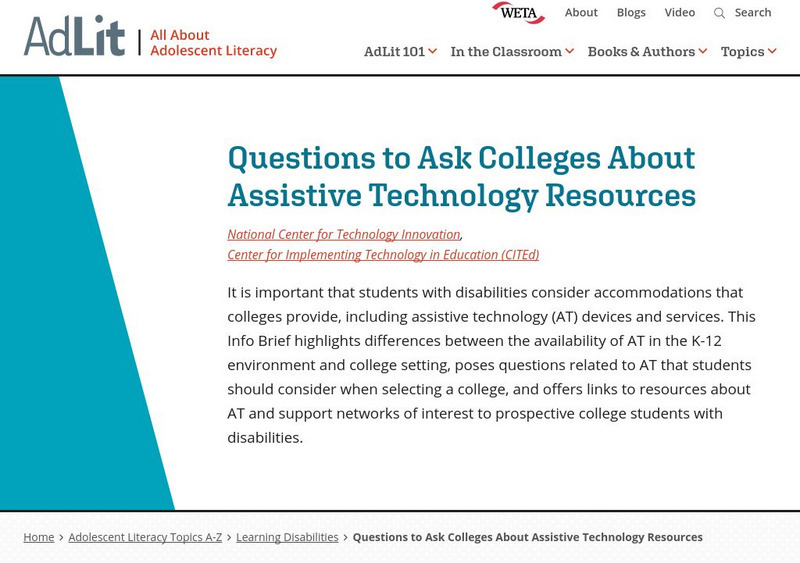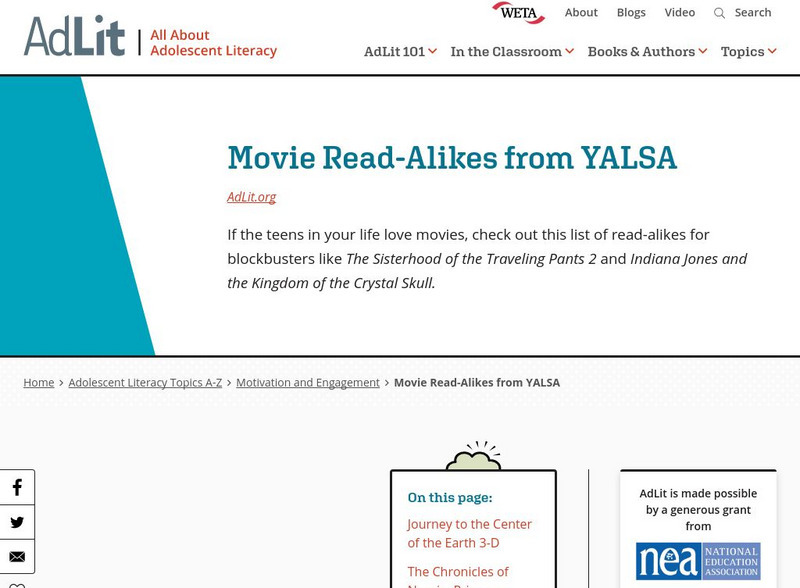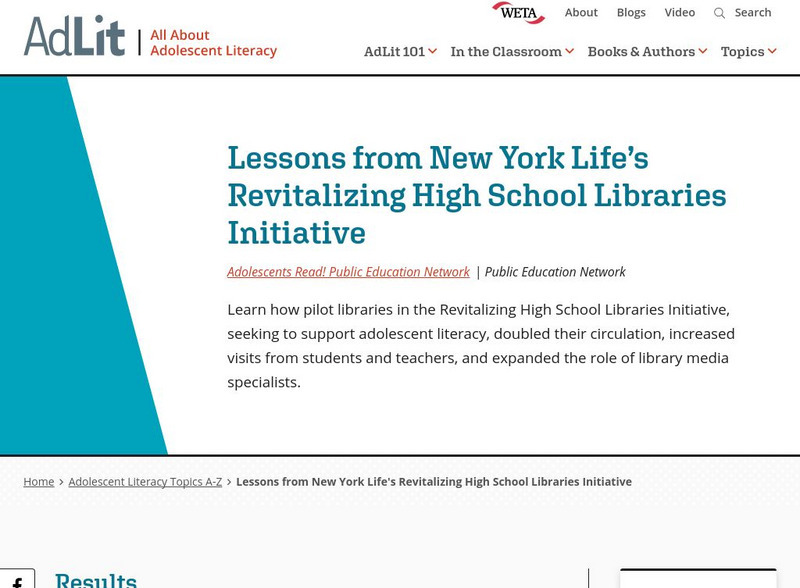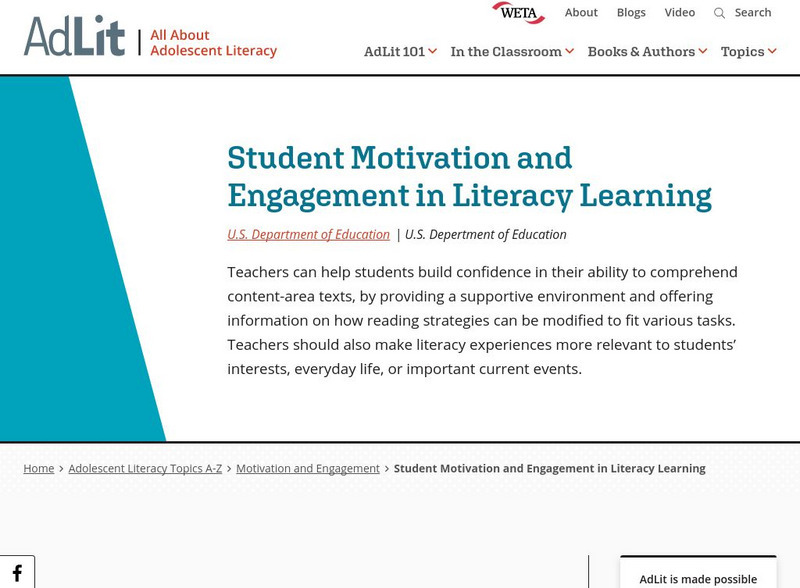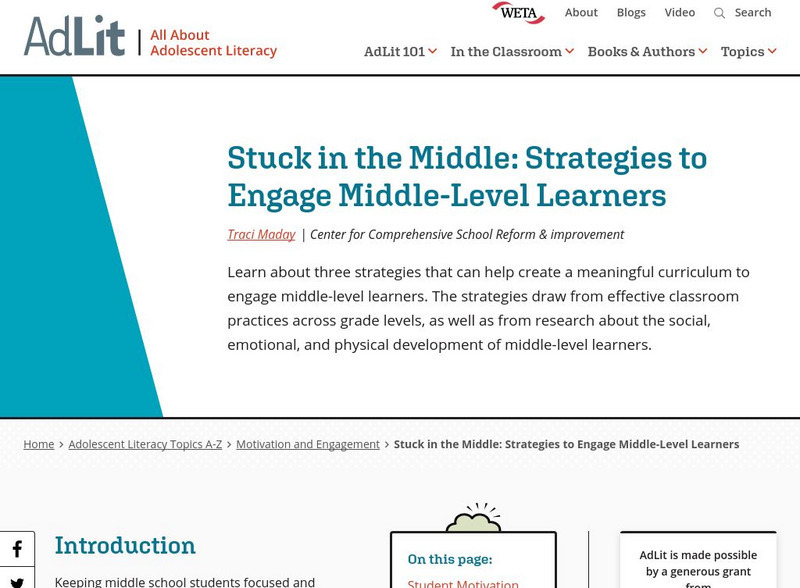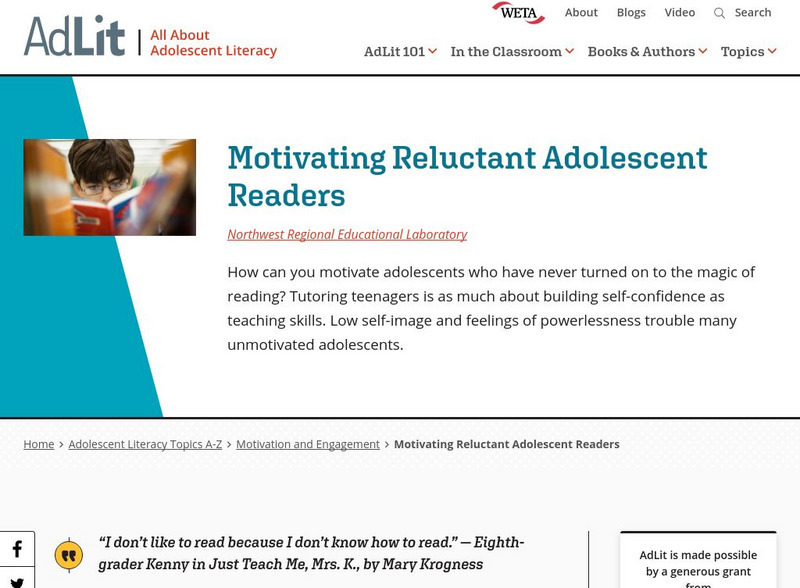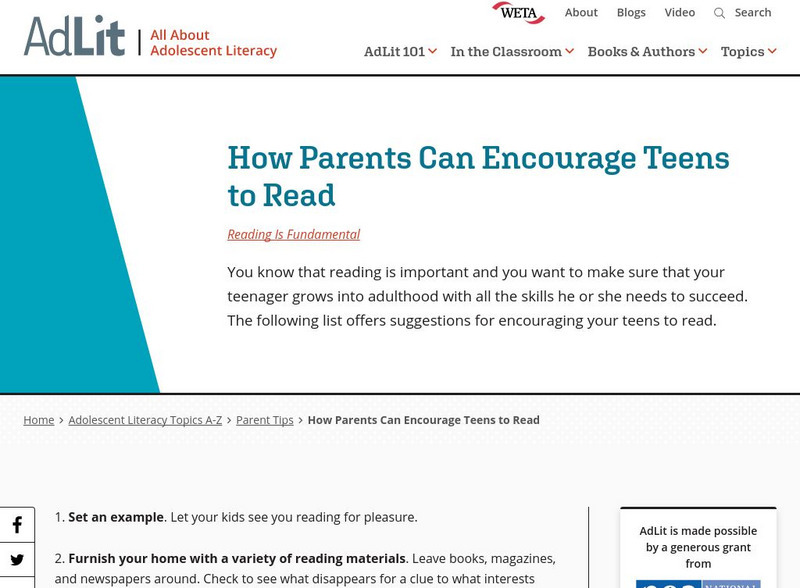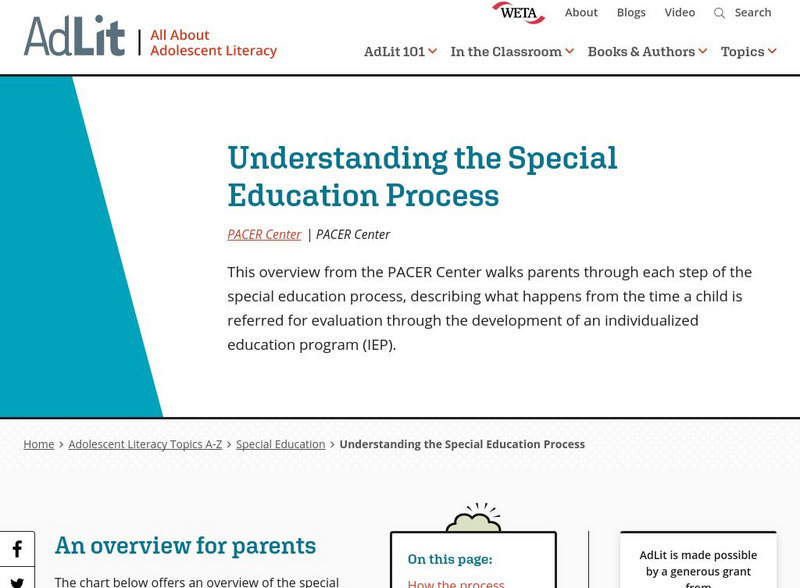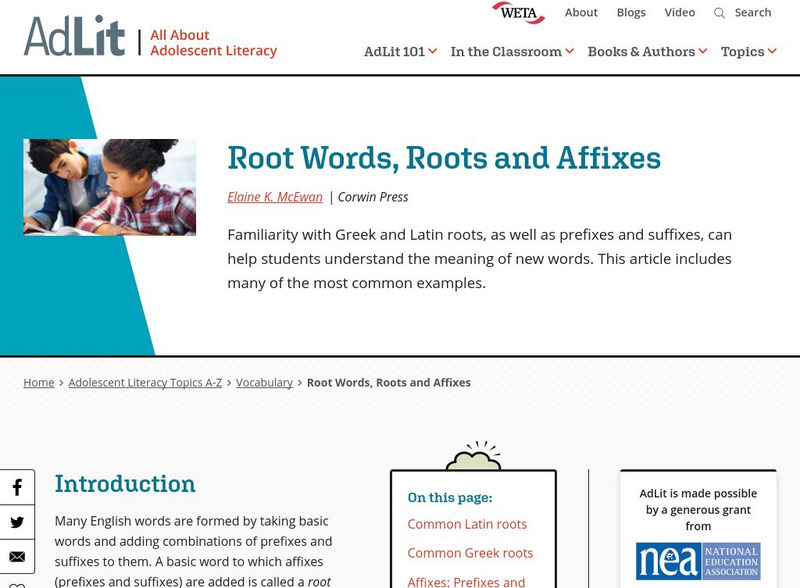AdLit
Ad lit.org: Adolescent Literacy and Older Students With Learning Disabilities
This report describes the adolescent literacy problem (grades 4 to 12), its consequences, and contributing factors. Guiding principles for assessment, instruction, and professional development, as well as recommendations for short-term...
AdLit
Ad lit.org: A Student's Perspective on Writing
Eli tells us what it is like to have dysgraphia. Regina Richards, a well-known expert on dysgraphia (and Eli's mom), explains how to help children who struggle with the challenges Eli describes. Practical techniques discussed include...
AdLit
Ad lit.org: The Why, When, What, and How of Disclosure in a Postsecondary
When you continue your studies after high school, should you tell the school and instructors about your learning disability? This article will help you decide when and how to disclose your disability to obtain accommodations.
AdLit
Ad lit.org: Designing a Dossier: An Instruction Book for Your Child
Many of the adults in your child's life are unfamiliar with learning disorders in general, or your child's unique pattern of strengths and limitations. Developing a one- to three-page dossier that provides useful information about your...
AdLit
Ad lit.org: Response to Intervention (Rti): A Primer for Parents
Learn what questions to ask about Response to Intervention (RTI), an approach to helping struggling learners that is gaining momentum in schools across the country. This article from the National Association of School Psychologists tells...
AdLit
Ad lit.org: Transitioning Students With Disabilities to Higher Education
How can you help high school students get ready for post-secondary education? Review these recommendations from the Department of Education and find out how to help students understand their disabilities, explain their disabilities to...
AdLit
Ad lit.org: Transition of Students With Disabilities to Postsecondary Education
How do a student's rights and responsibilities change when they move from high school to post-secondary education? Read these questions and answers from the Department of Education to find out.
AdLit
Ad lit.org: Questions to Ask Colleges About Assistive Technology Resources
It is important that students with disabilities consider accommodations that colleges provide, including assistive technology (AT) devices and services. This Info Brief highlights differences between the availability of AT in the K-12...
AdLit
Ad lit.org: Using Assistive Technology to Support Writing
Technology-and especially the subset of technology tools known as assistive technology-can be an effective element of the writing curriculum for students with disabilities. Assistive technology (AT) can be defined as a technology that...
AdLit
Ad lit.org: Dr. Seuss for Older Students
NEA's annual Read Across America celebration is a great opportunity for tweens and teens to both celebrate their literacy and language skills and share them in meaningful ways.
AdLit
Ad lit.org: Movie Read Alikes From Yalsa
If the teens in your life love movies, check out this list of read-alikes for blockbusters like The Sisterhood of the Traveling Pants 2 and Indiana Jones and the Kingdom of the Crystal Skull.
AdLit
Ad lit.org: Lessons From Ny Life's Revitalizing High School Libraries Initiative
Learn how pilot libraries in the Revitalizing High School Libraries Initiative, seeking to support adolescent literacy, doubled their circulation, increased visits from students and teachers, and expanded the role of library media...
AdLit
Ad lit.org: Student Motivation and Engagement in Literacy Learning
Teachers can help students build confidence in their ability to comprehend content-area texts, by providing a supportive environment and offering information on how reading strategies can be modified to fit various tasks. Teachers should...
AdLit
Ad lit.org: Stuck in the Middle: Strategies to Engage Middle Level Learners
Learn about three strategies that can help create a meaningful curriculum to engage middle-level learners. The strategies draw from effective classroom practices across grade levels, as well as from research about the social, emotional,...
AdLit
Ad lit.org: Motivating Reluctant Adolescent Readers
How can you motivate adolescents who have never turned on to the magic of reading? Tutoring teenagers is as much about building self-confidence as teaching skills. Low self-image and feelings of powerlessness trouble many unmotivated...
AdLit
Ad lit.org: Understanding the School Counselor Parent Connection
School counselors work with teachers, administrators, and parents to help students with schoolwork and their social/emotional development.
AdLit
Ad lit.org: How Parents Can Encourage Teens to Read
You know that reading is important and you want to make sure that your teenager grows into adulthood with all the skills he or she needs to succeed. The following list offers suggestions for encouraging your teens to read.
AdLit
Ad lit.org: Position Statement on Student Grade Retention and Social Promotion
In this statement, the National Association of School Psychologists (NASP) identifies the characteristics of students more likely to be retained and the impact of retention at the secondary school level, late adolescence, and early...
AdLit
Ad lit.org: Understanding the Special Education Process
This overview from the PACER Center walks parents through each step of the special education process, describing what happens from the time a child is referred for evaluation through the development of an individualized education program...
AdLit
Ad lit.org: Be a Reading Role Model
Your child walks like you, talks like you, and absorbs everything you do. So set the right example when it comes to reading. If you want your child to be a good reader, be one yourself!
AdLit
Ad lit.org: Breaking Barriers Without Breaking the Bank
When you see your child struggling, you want to jump in and help, but sometimes your instincts and desire aren't enough. When your child has trouble with schoolwork and a tutor is necessary, one of the biggest roadblocks to getting help...
AdLit
Ad lit.org: Four Steps to Finding an Excellent Tutor for Your Child
Whether your child is lost in a haze of elementary grammar rules, sinking fast in a jumble of Newton's laws in middle school, or lost in the details of an AP biology class, you need help quickly, before your child falls way behind the...
AdLit
Ad lit.org: No Child Left Behind: Determining Assessment Accommodations
Assessment accommodations help people with learning disabilities display their skills accurately on examinations. Teachers, learn how to test the true knowledge of your students. Don't test their ability to write quickly if you want to...
AdLit
Ad lit.org: Root Words, Roots and Affixes
Familiarity with Greek and Latin roots, as well as prefixes and suffixes, can help students understand the meaning of new words. This article includes many of the most common examples.


